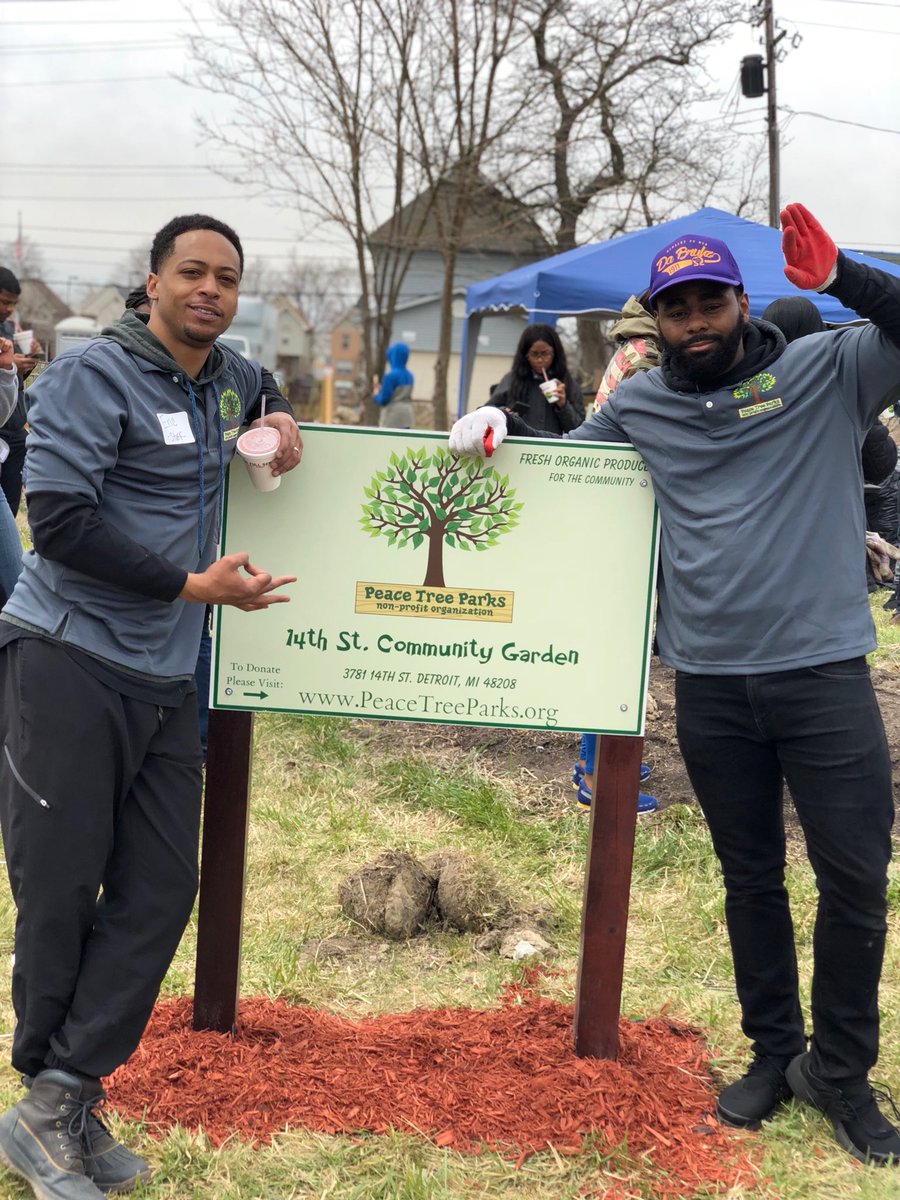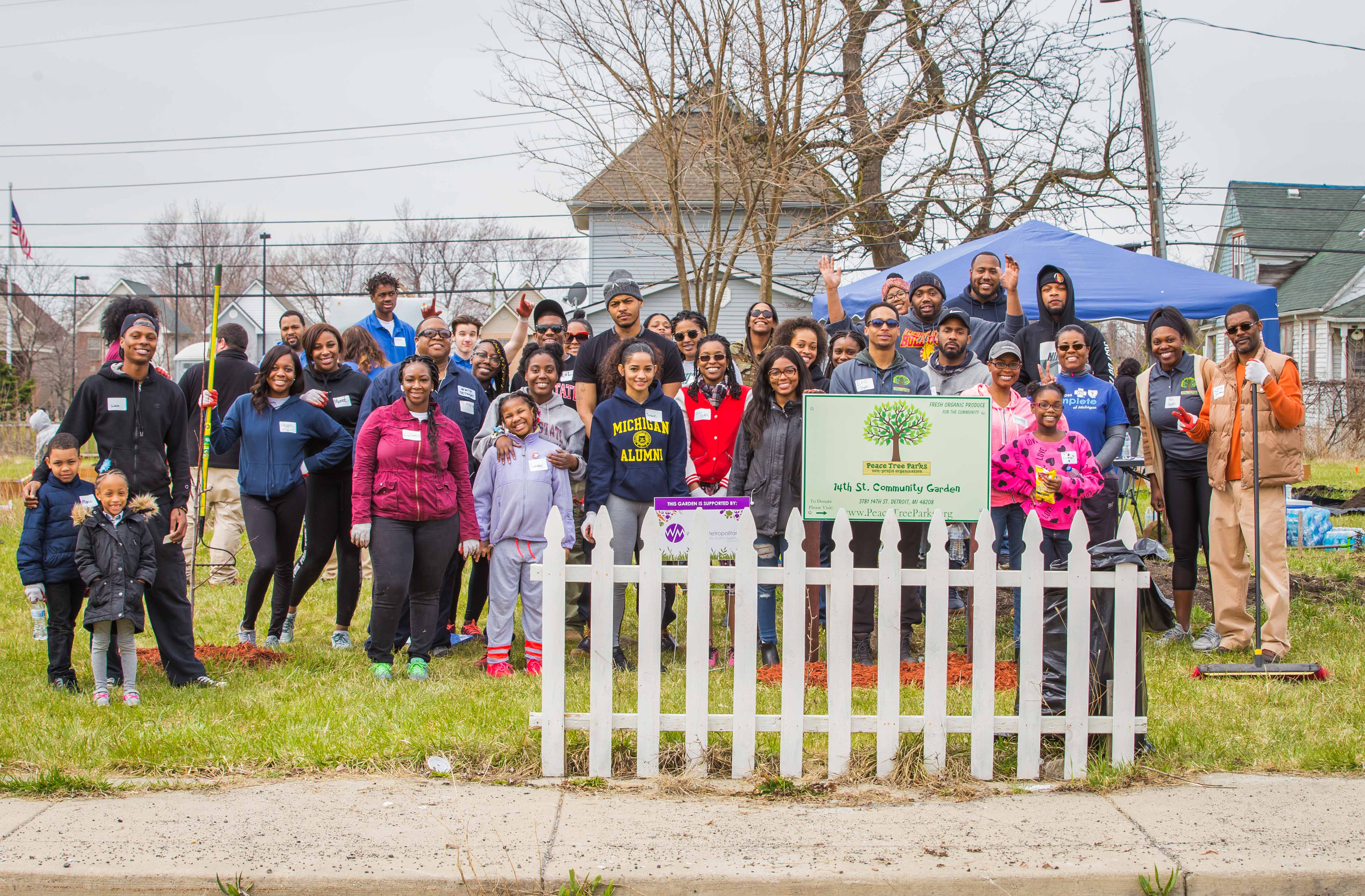
Growing up near the old Jeffries Projects on Detroit’s west side, Eric Andrews, 28, can remember going to the grocery store with his mother and seeing her buy produce that was not of good quality. It is still that way today. So, he and high school classmate at Detroit King, D’Andre Riggins, founded Peace Tree Parks in 2015 with a mission to improve the access that Detroit residents have to fresh organic produce through its urban community gardens.
“I grew up in this area and we don’t have a grocery store over here now,” said Andrews. “Whole Foods is nearby but that’s not for the people over here on 14th Street. It’s harder for these people to get fresh vegetables. We needed gloves and we had to go all the way to Dearborn just to get gloves at Home Depot. In our communities, we either get the stuff last or we just don’t have it. So, we’re just trying to bring those things back into the community and give these people a place they can get fresh vegetables from.”
Peace Tree Park’s home garden sits on the corner of 14thStreet and Selden, surrounded by a mixture of new housing development, empty lots, and abandoned homes. In a city that has more than 1,500 individual, community, school garden, and larger-scale farms, Peace Tree Parks is one of the few that is owned and operated by African-Americans. And unlike other urban gardens in the city, residents of the Core City neighborhood will not have to pay a dime to eat healthy.
“This garden will be for the community to help themselves,” said Riggins, who grew up in the North End neighborhood of Detroit. “When you come to the garden and you see something you like, it’s free of charge. Also, we give it to the homeless shelters. Basically, we want the people of Detroit to be able to eat healthy and to be educated on the benefits of eating healthy. The more resources they have, the better it is for this community.”

At Peace Tree Park’s community garden, once everything is grown and harvested, residents in the neighborhood will be able to pick collard greens, kale, parsley, oregano, spinach, peppers, zucchini, squash, tomatoes, honey, mint, homemade Italian seasoning, and other items they would not necessarily find at the neighborhood grocer. Detroit Hives is also placing a beehive in the garden to pollinate the crops. They also have a rose garden, pumpkin patch, compost bin and watermelon garden near the back alley. It’s like Whole Foods, without the expensive prices.
“When you go to Birmingham, Troy and other communities out there, their stores sell organic crops,” said Andrews. “When you go up here to the grocery store on Trumbull, they don’t have an organic section to even offer. The stuff that you buy from the neighborhood stores will expire in two days but out in the suburbs, they get the fresh food that’ll last for a week or two. We’re already at a disadvantage in the community and we’re trying to level the playing field with our garden.”
African-Americans are a disadvantaged population and for those who live in low-income neighborhoods or are of lower socio-economic status, they have less access to quality foods and sufficient healthcare. Bad eating habits have plagued the African-American community for generations and sometimes, it has not been by choice. African-Americans are often forced to eat what they have access to, which often includes fast food, processed food, and junk food. Peace Tree Park’s mission is to end that cycle.
“As African-Americans, some of the things that kill us are high cholesterol, heart disease, high blood pressure and other diseases,” Andrews said. “All of those things are direct factors of what you’re eating. In our neighborhoods, we have McDonald’s and Burger King on every corner but there are no smoothie shops or healthy grocery stores. So, if we are able to grow our own food and educate people on what they are putting into their bodies, we can save some lives.”
If you would like to donate to and help continue to make organic produce more accessible for local Detroiters or to find out more about Peace Tree Parks, visit PeaceTreeParks.org.